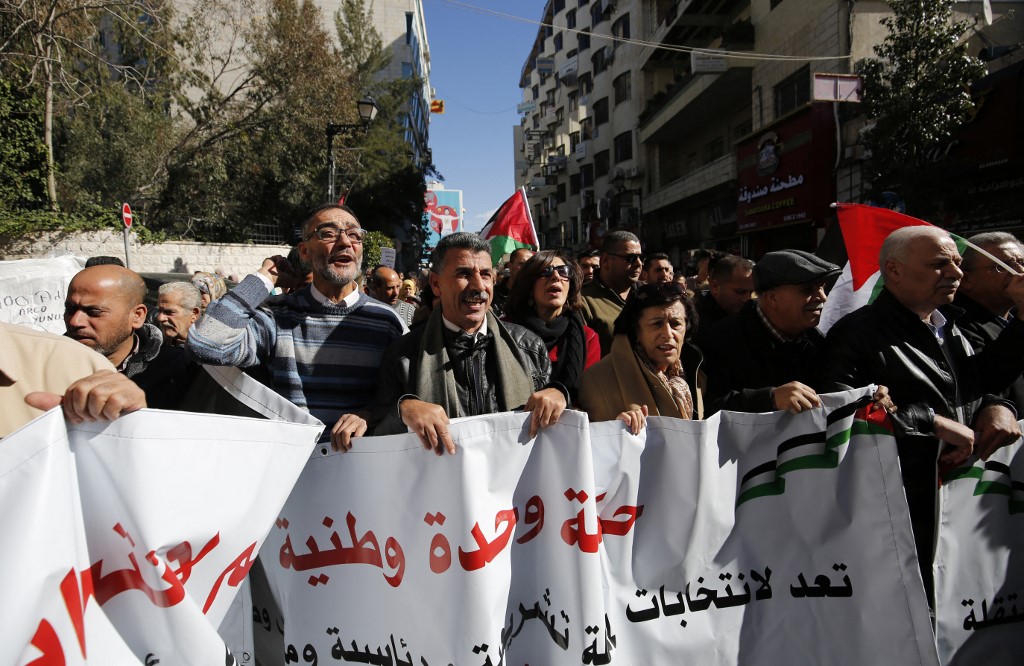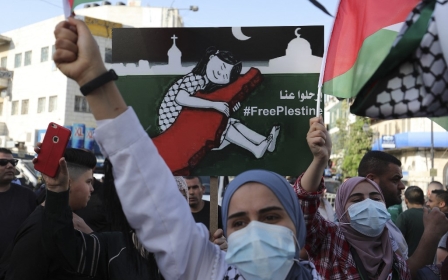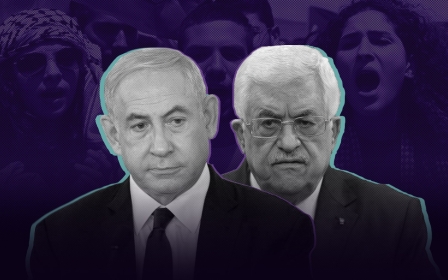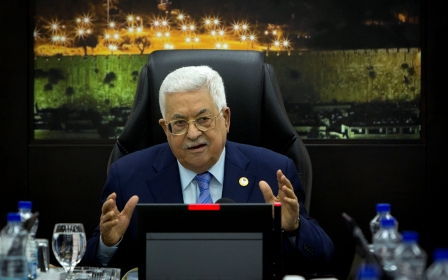Palestinian factionalism has destroyed the national movement

It was once an internationally renowned anti-colonial movement that brought the question of Palestine into the regional and international spotlight. But today, the Palestinian national movement suffers from increasing irrelevance and dramatic decline, torn by polarisation and division, its national strategy replaced by competing self-serving agendas.
This can easily be attributed to the mechanism of control devised by the Oslo process, notably the Palestinian Authority (PA), which coopted a significant segment of the Palestinian movement and leadership. But the movement’s structural crisis predates Oslo, with factionalism having long sowed the seeds of intra-Palestinian rivalries.
Factionalism constitutes fertile terrain for competing Arab regimes to manipulate Palestinian politics for their own ends
Instead of imbuing the Palestinian body politic with revitalising pluralism, factionalism has instead been largely driven by rigid dogmas and exclusionary politics. It devastated the pre-Nakba Palestinian struggle against British and Zionist colonial forces, which was dominated by clan cleavages inherited from the Ottoman era. Parties lacked clear political programmes and frequently engaged in squabbles over power and authority.
The formation in 1964 of the Palestine Liberation Organization (PLO) as a collective framework for various political movements initially breathed new life into Palestinian politics. But it was soon riven by competing factional agendas, sometimes presenting irreconcilable visions. The absence of genuine democratic mechanisms within PLO institutions further damaged the national movement.
One of the major historical divides related to the 1974 “10-point programme”, embraced by Fatah but rejected by other factions because it prioritised statehood over liberation through the creation of a “national authority”.
New MEE newsletter: Jerusalem Dispatch
Sign up to get the latest insights and analysis on Israel-Palestine, alongside Turkey Unpacked and other MEE newsletters
External manipulation
Factionalism constitutes fertile terrain for competing Arab regimes to manipulate Palestinian politics for their own ends. In Syria and Iraq, for example, Baathist forces founded as-Saiqa and the Palestinian Arab Front respectively, aiming to represent their competing claims within the PLO. This was a factor in diverting the national movement from its anti-colonial objectives towards rival Arab state interests.
Islamic movements introduced an additional factional pillar to the national movement. The foundation of Islamic Jihad in 1981 and Hamas in 1987 challenged the historical dominance of the PLO. Hamas in particular has presented itself as a viable alternative to the crisis-ridden PLO, advancing a radically different vision of how Palestinian politics and society ought to operate, including through a conservative social order.
At the same time, Hamas and Islamic Jihad have their own intra-factional rivalries, with the two groups holding contrasting views on various political and social issues. Whereas Hamas was an offshoot of the Muslim Brotherhood, Islamic Jihad was inspired by the 1979 Islamic Revolution in Iran. Unlike Islamic Jihad, which distances itself from controversies on the social role of Islam, Hamas' doctrine emphasises the Islamisation of society as a precondition for liberation.
While Hamas views its relationships with Iran and Hezbollah through a lens of pragmatism, Islamic Jihad considers them strategic allies for the Palestinian struggle.
Pursuit of power
The Oslo years ushered in a new stage of Palestinian politics, where the pursuit of power and material privileges dominated most factions under Israel’s colonial expansion. The establishment in 1994 of the PA, a body that was dependent on international aid and Israeli security conditions, fuelled exclusionary politics based on narrow factional loyalties and interests.
The crisis peaked in 2007 amid clashes between the Fatah-led PA in Ramallah and the de facto Hamas government in Gaza. They mobilised their resources against each other, suppressed dissents and tightened their individual grips on power, allowing Israel more space to manipulate the situation to prevent meaningful reconciliation between the West Bank and Gaza leaderships.
Factionalism also has an economic dimension, with employment in the PA’s civilian and security sectors in Gaza and Ramallah largely based on proximity to the ruling factions. Fatah also exploits its financial leverage to weaken opposition to the PA.
The PA relies heavily on dogmatic, populist rhetoric to enforce its dominance over Palestinian politics and institutions. The recent assassination of activist Nizar Banat by PA security forces was a case in point. While Palestinians took to the streets to demand accountability, Fatah portrayed the protests as a “conspiracy” fuelled by a “foreign agenda” targeting its “legitimate” leadership, and waged a brutal crackdown.
Palestinian factionalism is ultimately a self-destructive endeavour that runs counter to the Palestinian struggle and national interests. It has marginalised urgently needed voices and ideas, and prevented progressive change within the national movement.
As long as this rigid form of factionalism persists, the decay of the Palestinian national movement is inevitable.
The views expressed in this article belong to the author and do not necessarily reflect the editorial policy of Middle East Eye.
This article is available in French on Middle East Eye French edition.
Middle East Eye delivers independent and unrivalled coverage and analysis of the Middle East, North Africa and beyond. To learn more about republishing this content and the associated fees, please fill out this form. More about MEE can be found here.






